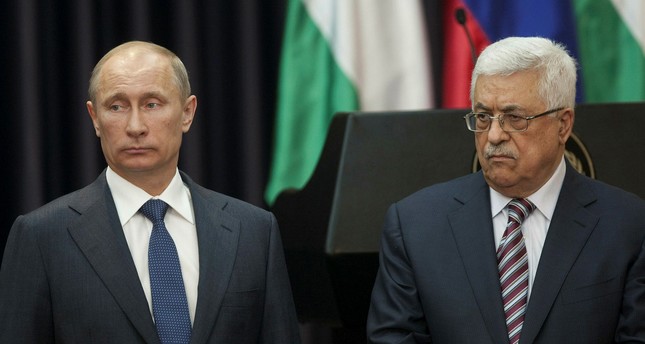
Russian President Vladimir Putin (L) and Palestinian leader Mahmoud Abbas (R) plan to discuss a possible new mediation mechanism to replace the Middle East Quartet.
Moscow, MINA – By fostering a peacemaker role in the Middle East, Russia is increasingly sidelining the United States, analysts say, in particular in the Israeli-Palestinian conflict and in Syria.
The US, a staunch ally of Israel, provoked outrage among Palestinians two months ago when it recognized Jerusalem as Israel’s capital, upending decades of US foreign policy.
US President Donald Trump’s decision on Jerusalem “created a window of opportunity for Russia,” said Alexey Khlebnikov, a Middle East expert at the Russian International Affairs Council.
“The move provided Moscow with another chance to deepen its role as a powerbroker in the Middle East and again at the expense of the US,” Khlebnikov told DPA..
Also Read: Syria, Jordan Condemn Netanyahu’s Visit to Occupied Syrian Buffer Zone
Unlike the US, Russia has managed to maintain robust relations with both Israel and the Palestinian Authority, as well as Israeli rivals such as Syria and Iran.
On Monday, Russian President Vladimir Putin was due to host Palestinian leader Mahmoud Abbas for talks about peace efforts, exactly two weeks after Putin met with Israeli leader Benjamin Netanyahu.
As Trump’s policies appear to favour Israel more than those of his predecessor Barack Obama, Abbas has resisted, saying the US “can no longer play a leading role” in peace efforts.
“Russia’s recent rise in power in the Middle East has largely happened due to Washington’s mistakes and miscalculations,” Khlebnikov continued. “The US does not have a consistent policy towards the region if it has one at all.”
Also Read: UNIFIL Reports Over 7,300 Israeli Violations of Lebanese Airspace Since Ceasefire
The path ahead for any mediation is not straightforward, however, as Israel has insisted that the US will remain the main peacebroker.
In Israel’s neighbour Syria, Russia is also wielding its influence: militarily, in support of its long-time ally President Bashar al-Assad, and diplomatically, in a peace process also sponsored by Iran and Turkey.
Kremlin’s self-interest at play.
When it comes to peacemaking, however, analysts see the Kremlin’s self-interest at play.
Also Read: Russia Condemns UN Gaza Resolution, Says It Contradicts Palestinian Statehood
“Russia would want to use a peacemaker’s role to advance its own interests, even just to assert its place as a global power,” said Mark Galeotti, senior researcher at the Institute of International Relations Prague.
“With its economic problems, Moscow does not have and does not want to spend its resources on policies that will not bring adequate economic and/or political dividends,” Khlebnikov agreed.
Russia’s growing influence therefore leaves Russia’s critics in the West in a difficult situation.
“The dilemma for the West is whether the priority is to exclude Russia … or seek to use it to help solve some very difficult global issues, but allow it to benefit in the process,” Galeotti told dpa.
Also Read: Israeli Airstrike on Palestinian Refugee Camp in Lebanon Kills 13
This may also apply to North Korea, where Russia also has traction in negotiations over Pyongyang’s nuclear programme, Galeotti noted. Russia and China are the only two countries – apart from South Korea – that share a land border with the North.
“I don’t see any serious willingness on the part of the West to see Russia as a potential peacemaker,” Galeotti continued. “That may be a wasted opportunity.” T/RS5/RS1)
Mi’raj Islamic News Agency (MINA)
Also Read: UN Security Council Adopts US-backed Resolution to Deploy International Force in Gaza






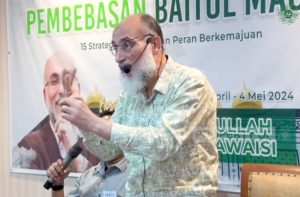


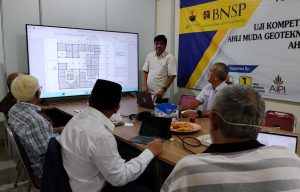




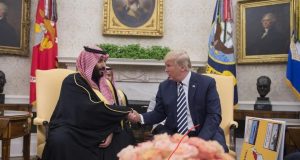
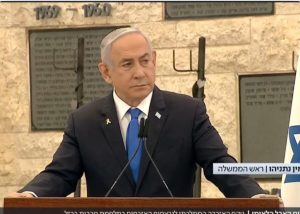


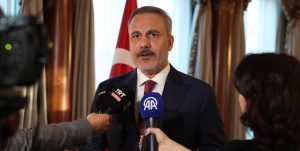















 Mina Indonesia
Mina Indonesia Mina Arabic
Mina Arabic